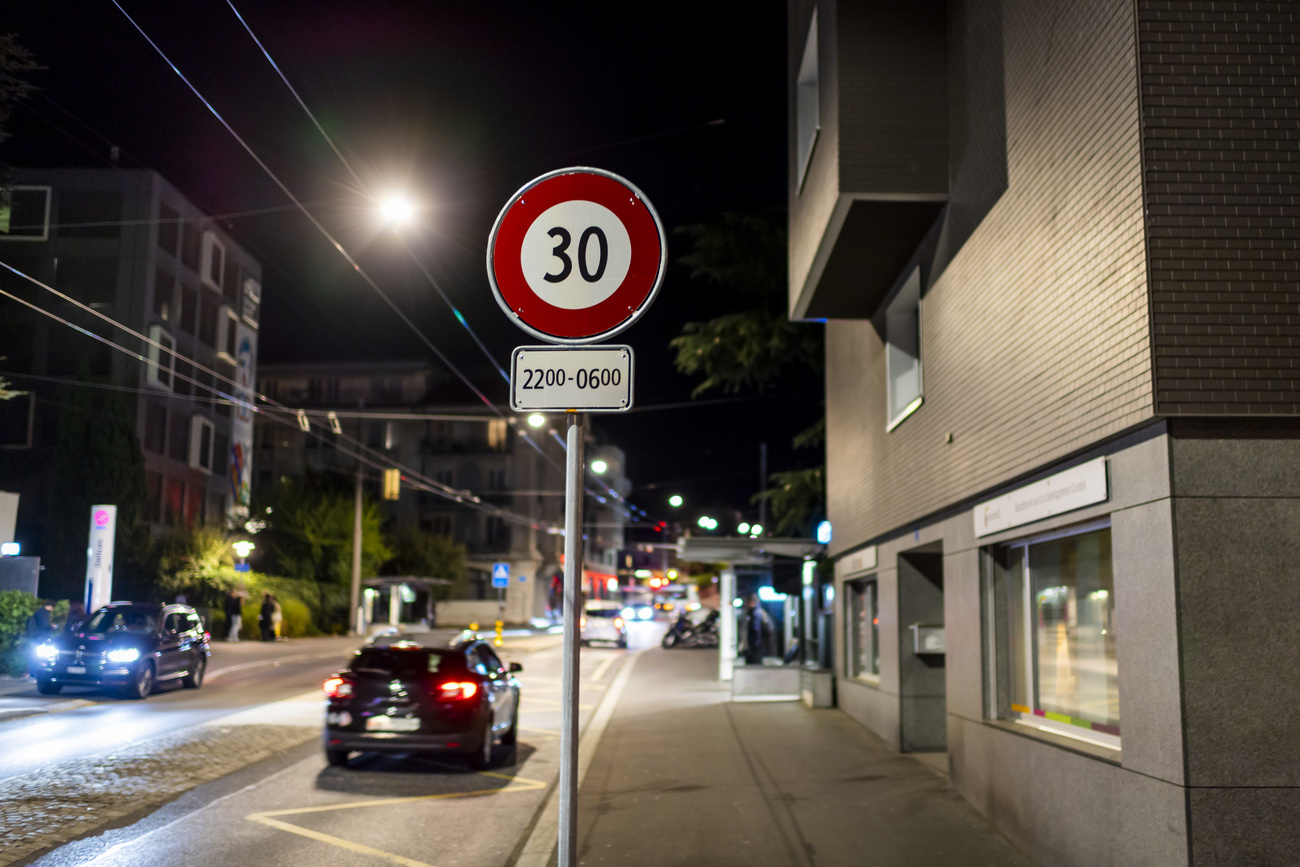
Poll: Most Swiss back 30km/h speed limit in urban areas

Most Swiss residents would be in favour of a 30 kilometre (18 miles) per hour speed limit in urban areas, a survey has found.
A poll by the Swiss Council for Accident Prevention (BPA), published on TuesdayExternal link, found that 52% of respondents support a 30km/h speed limit on city streets. An exception would be made for main thoroughfares, which would keep the current speed limit of 50km/h.
The proposal was well supported by elderly people (59% in favour) and women (54%), the poll found. The idea was particularly well received in Italian-speaking regions, where two-thirds of respondents were in favour, followed by French-speaking regions (55%); German-speaking regions were more mixed (50%).
The BPA survey coincided with an announcementExternal link on Tuesday by the town of Sion, the capital of canton Valais, that it plans to reduce the speed limit – day and night – in much of the city to 30km/h from spring 2022. The Sion authorities say they want to improve road safety, noise pollution, air quality and conflicts between road users.
This decision follows a similar move last month by the city of Lausanne, which introduced a 30km/h speed limit on 122 streets between 10pm-6am to reduce noise pollution – a Swiss first.
Other Swiss cities are interested in the idea, including Geneva, Zurich and Winterthur.
A speed limit of 30km/h (18mph) came into force across Paris in neighbouring France on August 30 in a drive to cut accidents, and reduce noise and pollution. A poll found that 59% of Parisians are in favour of the measure, but some businesses are among those opposed.
In Europe, similar 30km/h limits are already in force in the French towns of Grenoble and Lille, as well as Bilbao in Spain, and the Belgian capital, Brussels.

More
Report outlines hefty bill to cut down on Swiss noise pollution

In compliance with the JTI standards
More: SWI swissinfo.ch certified by the Journalism Trust Initiative






























You can find an overview of ongoing debates with our journalists here . Please join us!
If you want to start a conversation about a topic raised in this article or want to report factual errors, email us at english@swissinfo.ch.